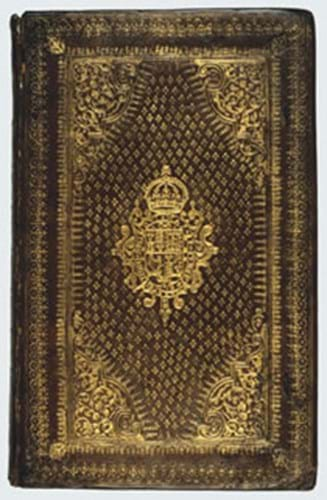
That pamphlet was one of a number of scarce examples in the Swindon sale of the elegant 'neo-Latin' verse produced by humanist poets, writers and scholars in their attempt to restore to its classical grandeur a universal language that had become increasingly debased and clumsy during the medieval period.
There was some initial unease among potential buyers about the number of disbound items in this property and their possible origin, but the saleroom declared every confidence in their source and tell me that they believe these items may have formed part of a collection assembled between the 1930s and '50s by a relative of their now-delighted Oxfordshire vendor.
Close on 30 lots from this source made the antiquarian section of this Swindon sale a particular attraction and although Arthur Freeman was eventually successful on the larger portion, he had plenty of competition, notably from his former partner, Stephen Weissman of Ximenes (the firm that Freeman founded over 40 years ago, whilst still at Harvard), but also from telephone bidders, who, I believe, may have included Maggs and Sokol. Those who had left smaller bids based on the Swindon saleroom's modest estimates were left disappointed and empty handed.
The Adamson work mentioned above brought its author a spell in prison for describing Mary and Darnley's son as a prince of Scotland, England and Ireland, but the boy did indeed grow up to be crowned James VI of Scotland and James I of England, and another of the Swindon highlights was Maximo Potentissimo que Monarchae, Jacobo Primo..., an early poem by John Barclay that congratulates James on his accession.
Printed in Paris in 1603, this, like the Adamson poem, was a Weissman purchase - this time at £3300 against an estimate of £70-100 - but he was bidding in both instances on behalf of Quaritch, and I would not be at all surprised to learn that these scarce items are destined for the National Library of Scotland.
There was a third item of considerable Scottish interest in a job lot of seven disbound items that sold at £2100 to Freeman.
Ad Illustriss. et Clariss. D.D. Pelvium Cardinalem, Archiepis-copum Renensem et Franciae Parem, printed in Paris in 1593, was catalogued, via the title page, as the work of George Critton, but is in fact a very rare work by the Scottish jurist and classical scholar George Crichton, who studied law in Toulouse and spent virtually his entire life practising law or teaching in Paris. The lot was valued at £80-120, but then this work seems never to have been seen at auction before.
Some of these pamphlets bore the title page ownership inscriptions of Franciscus Rassius Noëns, who identifies himself as a surgeon of Paris and who is also known to have been a discerning bibliophile - a man whose books, wherever they are now found, are very often discovered to be of great rarity or interest.
One of these books, a copy of De Caleto recepta et rebus a Francisco Lotharingo Duce Guisio, auspiciis Henrici II gestis... of 1558 that was identified in a title page note by Noëns as the work of Petrus Gallendus, was one of a number of works in this property inspired by the recapture in that year of Calais by the French army, under the Duc de Guise. Fortuna Virtute Coercita... et domita itio Caletorum, Hama, Guyn & Thionville, captis receptisque, another work bearing Noëns' ownership inscription, sold at £1500 to Freeman.
De Caleti et Guinae..., yet another disbound work of 1558 dealing with the events at Calais - this time by the humanist, poet and sometime French chancellor, Michel de l'Hôpital, sold at £1080 to Freeman, but Joachim Du Bellay's Amplissimi cuiusdam viri epistola ad illustris. principem Francis Lotaringum Ducem Guisianum..., another 1558 Paris imprint, went to Ximenes at £2500.
Genethliacum Claudii Doleti, Stephani Doleti filii... of 1539, a poem celebrating the birth of his son in which Etienne Dolet gives eloquent expression to his Protestant beliefs whilst offering advice on his child's future conduct, was sold at £1600 to Freeman.
A scholar, writer and a printer of learned texts in Lyons, whose principal works include a defence (against Erasmus) of the Ciceronian cult of which he was a keen supporter, and Comment-arii linguae Latinae, as well as many important translations from classical writers and, amongst the works of his contemporaries, editions of Marot and Rabelais, Dolet also had a reputation as a vain, quarrelsome and unruly fellow who made enemies easily.
In 1536 Dolet had obtained a royal pardon for killing a man, apparently in self-defence, but in 1542, at the instigation of the other master printers of Lyons, whom he had managed to antagonise, Dolet was tried by the Inquisitor-General for publishing heretical books (translations of the scriptures), and though he once again obtained a royal pardon from the sentence of death, he was re-arrested, convicted of blasphemy and other offences and in 1546 was hanged and burned in Paris, where this martyr-printer is now commemorated by a statue.
Valued at £70-100 but sold at £1650 to Arthur Freeman was a disbound 1541 edition of Triumphus Eloquentiae, in Bonarum Literarum..., a play by Guilielmus Gnapheus, while a 1555 edition of the Poemata of the Hungarian humanist Johannes Sambucus that carried a similar estimate, was yet another Freeman purchase at £1550.




